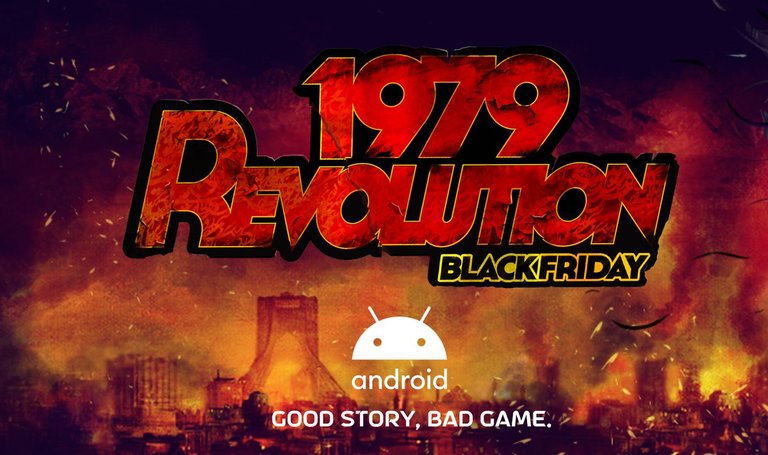

Disclaimer: Quiero aclarar por la sensibilidad de algunas personas que antes de este juego no tení concepción alguna de la historia de Irán ni de cualquier país oriental ya que viene al caso, toda la exposición a sucesos, sensacionalismo, amarillismo y / o propaganda a la que me sometí fue producto único y exclusivo del juego 1979 Revolution: Black friday, sin embargo esto no quiere decir que me atreveré a emitir juicios morales referentes a la historia o cultura de un país o continente, me limitaré a hacer una reseña respetuosa de un juego que está disponible para el público a nivel mundial, no me adjudico el criterio para revisar los hechos históricos ni la fidelidad de ellos, dicho esto, el juego será evaluado bajo los parámetros con los que acostumbro valorar cualquier título cuya intención sea recrear o incluso como en este caso, informar.
Sigo buscando con empeño a través de la play store de Android títulos que valgan la pena, luego de todos los desastres de juegos que he probado, en su mayoría copias de refritos de copias de copias (suena absurdo pero si rebuscas un poco en los orígenes de algunos juegos encontrarás que copian burdamente a copias de otros juegos) es triste para el mundo del gaming en móvil y podría haberme rendido, pero no, seguía buscando juegos con historias o jugabilidades que valieran la pena, y lo encontré... mas o menos.
Una historia con una lección de historia
1979 Revolution, es un juego estilo novela gráfica interactiva en el que controlamos a Reza, un fotógrafo Iraní que quiere exponer la realidad de su país al resto del mundo, dar a conocer las injusticias y la represión que se está cometiendo en contra de los que manifiestan exigiendo la salida la Dinastía Pahlaví y al autoproclamado rey de Irán, el Shah.
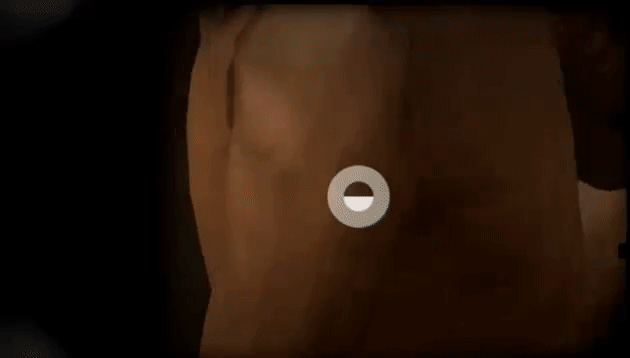
No se puede resumir de forma justa la historia de 1979 revolution, los protagonistas resaltan las distintas personalidades presentes en cualquier conflicto, hay quienes abogan por la paz, otros quienes entendieron que la violencia y exigir a la fuerza sus derechos es la única solución, y como Reza, los que están en el medio, intentando buscar una solución para todos y aportando tanto como pueda.
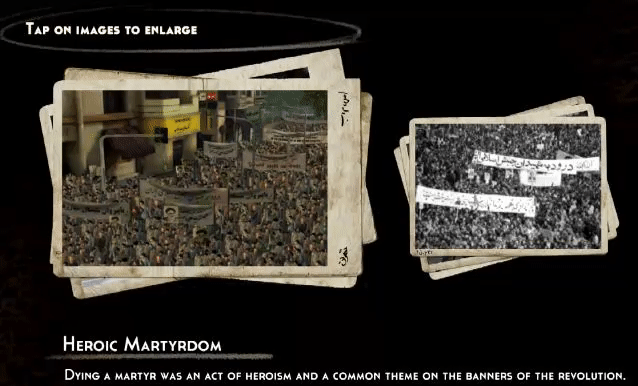
La coherencia narrativa es uno de los puntos a favor de este juego, Reza no es un guerrero, no es un soldado, es un periodista con una cámara que quiere hacer llegar su realidad a tantas personas como le sea humanamente posible, durante las secuencias de captura de fotografía (una de las pocas mecánicas jugables), se nos pide que capturemos secuencias que posteriormente sabremos que son hechos históricos emblemáticos reales que sucedieron durante la revolución Iraní, a la izquierda podemos ver la foto capturada en el juego y a la derecha la foto real que intenta emular con una breve leyenda en la parte inferior, sin duda un método ingenioso que revela las intenciones de los desarrolladores, querer mostrar la verdadera cara de la revolución sin recurrir a los métodos periodísticos modernos que dejan en segundo plano a la información y remarcando los elementos que sean más dramáticos o interesantes y de esa forma vender más, pero me estoy adelantando.
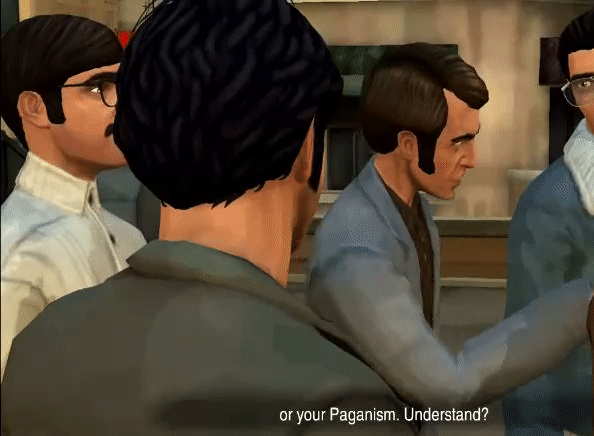
La dicotomía Paz o guerra como comentaba antes, se refleja en los personajes que acompañan a Reza, pero también en las decisiones a las que lo empujas.
Ventajas del videojuego
El videojuego como medio, sobre otros medios audiovisuales posee una ventaja importante que no se debe obviar, es un método interactivo para contar una historia, esto quiere decir que a diferencia de una película o una canción, la historia no se puede completar sin tu interacción, es este el verdadero motivo de que los videojuegos creen experiencias inmersivas, sabes de antemano que nada va a suceder si tu no lo permites, para que la historia avance debes avanzar tu primero, pero...
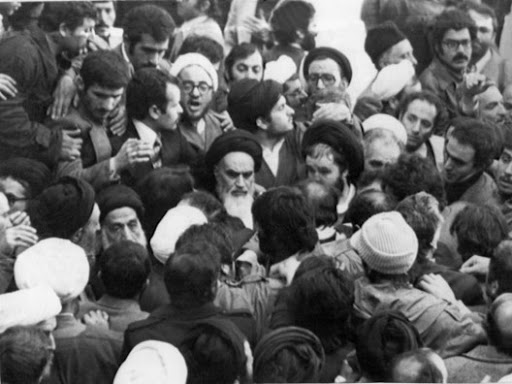
Todos estos sucesos ya ocurrieron, no hay forma de contar una historia de manera fidedigna y a la vez dar la opción de alterar los sucesos a voluntad de un jugador, y aquí haré un inciso para añadir parte de una investigación que tuve que hacer para esta publicación.
El público objetivo de 1979 Revolution Black Friday.
Muchos de los usuarios que me leen son de países latinoamericanos, y aunque no tengo intención de comparar estados de ineficiencia política, se que de una forma primordial entienden lo que se refiere a vivir controlados por una represión política, en Irán ocurre algo parecido, las escuelas (públicas en primer lugar) son la principal forma de adoctrinamiento, acomodan las mentes jóvenes a lo que quiere transmitir quien sea que rija en el momento, sin embargo vivimos en la era de la información y no permite que se divulgue desinformación o por lo menos no sin una pelea.
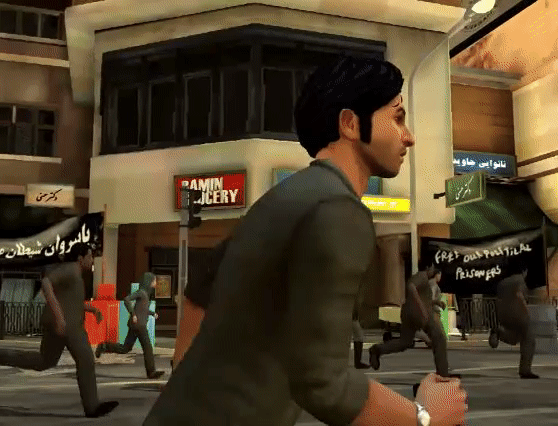
Las mecánicas jugables de 1979 se reducen a Quick time events, point and clicks y un poco de caminar por las calles esquivando peatones, añadido a las fotografías que son solo acomodar el foco presionando la pantalla cuando el foco se alinea con el objetivo, del resto es solo leer y continuar con la historia de la manera que elijas (agresiva o pasivamente), y esta limitación en la jugabilidad fue lo que me empujó en primer lugar a buscar información sobre las intenciones de los desarrolladores, entiendo que este tipo de mecánicas son un poco más acorde al estilo de juego que se nos presenta, porque no cabría utilizar un estilo shooter o de plataformas para un juego que intenta pintar la realidad de forma objetiva y este estilo más pausado simboliza las limitaciones físicas de una persona común (en contraste con las de un guerrero intergaláctico por decir cualquier cosa).
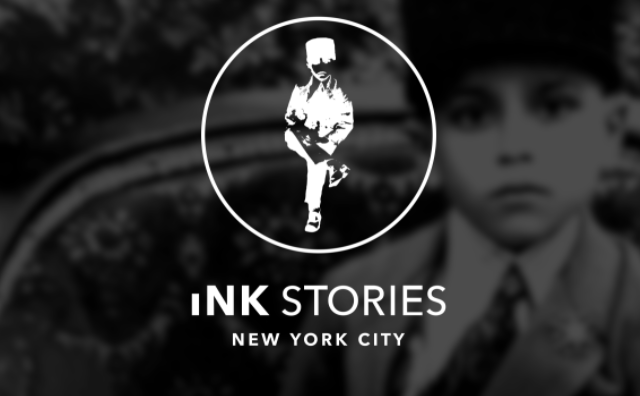
Logo y fondo de INK STORIES, compañía desarrolladora de 1979 Revolution Black Friday.
Y entonces miras la página de los desarrolladores y todo tiene sentido, las mecánicas sencillas y la historia fácil de consumir y con matices tan diferenciados no son casualidad, están dirigidas principalmente a niños y adolescentes Iraníes para que conozcan sus raíces y no se dejen engañar por la doctrina de turno, 1979 Revolution pone por delante de todos sus apartados su apego a los hechos y sus ganas de contar una historia sin tener que recurrir a secuencias bombásticas, es por eso que se siente real, no solo cuando se conectan los puntos y fotografías importantes en el juego con fotografías reales, sino desde el mismo ángulo del argumento, cuando se trata de exponer sucesos reales que llevaron a un país entero a lo que es hoy y la instauración del estado islámico, sin olvidarse que es un videojuego y su característica fundamental debe ser narrar con la interacción de un usuario.
No es la historia la que destaca en este juego, porque son hechos reales y documentados, sería indiferente si son o no interesantes, es la narrativa y la forma de presentarlos la que realmente pone un sello de distinción a este juego aunque mecánicamente sea simple y pobre, además de las licencias poéticas que se toma al utilizar a Reza como canal conductor y su (ahora si) interesante historia que acompaña al eje central, la revolución de 1979.
Actuación de voz.
Excepcionales, no hay mucho que decir al respecto, sin embargo tienen que ser sobresalientes para siquiera mencionarlas, no es frecuente que me fije en las actuaciones de voz en videojuegos pero en este caso lo considero significativo porque acompañan perfectamente a las personalidades de los personajes y a sus ideas y convicciones, te devuelve a la sensación del videojuego porque agregan dramatismo y sinceramente en un par de ocasiones de no haber sido por las grandes voces que prestan, no se habría conducido tan bien la trama.
Apreciación...
No puedo recomendar realmente una experiencia jugable donde una parte de la acción, ayudar a un colega herido, se ve... así...
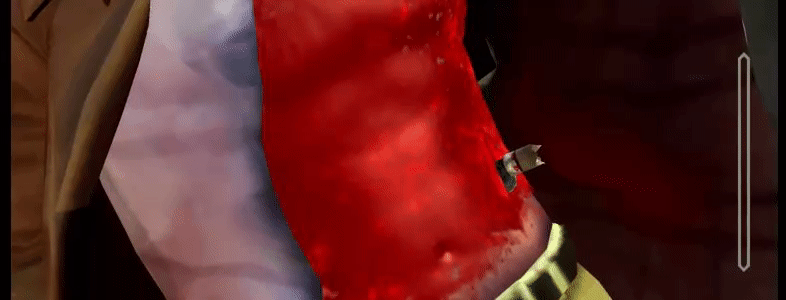
Oh si, pura acción y emoción.
Sin embargo la historia siento que vale la pena escucharla, es conmovedora en ambas partes, la historia de la revolución y la historia de Reza, tiene un final cargado de emociones y personajes entrañables, como ya dije, no puedo realmente recomendar el juego pero si tienes ganas de una buena historia y no te importa sacrificar la parte jugable pues, ahí está.
Muchas gracias por leer hasta el final, hasta la próxima.

Disclaimer: I want to clarify due to the sensitivity of some people that before this game I had no conception of the history of Iran or of any eastern country since it comes to the case, all the exposure to events, sensationalism, yellowishness and / or propaganda to wich i encountered was a unique and exclusive product of the game 1979 Revolution: Black Friday, however this does not mean that I will dare to make moral judgments regarding the history or culture of a country or continent, I will limit myself to making a respectful review of a game that is available to the public worldwide, I do not have the criteria to review the historical facts or their fidelity, having said that, the game will be evaluated under the parameters with which I usually evaluate any title which intention is to recreate or even as in this case, inform.
I'm still looking hard through the Android play store for worthwhile titles, after all the gaming disasters I've tried, mostly copies of rehashes of copies of copies (sounds absurd but if you dig a bit into the origins of some games you will find that they roughly copy copies of other games) is sad for the world of mobile gaming and I could have given up, but no, I kept looking for games with stories or gameplay that were worth it, and I found it... kinda.
A story with a history lesson
1979 Revolution, is an interactive graphic novel style game in which we control Reza, an Iranian photographer who wants to expose the reality of his country to the rest of the world, make known the injustices and repression that is being committed against those who disaprove the Pahlaví Dynasty and the self-proclaimed king of Iran, the Shah.

The history of the 1979 revolution cannot be fairly summarized, the protagonists highlight the different personalities present in any conflict, there are those who advocate for peace, others who understood that violence and forcibly demanding their rights is the only solution, and like Reza, those in the middle, trying to find a solution for everyone and contributing as much as possible.

Narrative coherence is one of the positive sides of this game, Reza is not a warrior, he is not a soldier, he is a journalist with a camera who wants to make his reality reach as many people as humanly possible, during the sequences of photography capture (one of the few playable mechanics), we are asked to capture sequences that we will later know are real emblematic historical events that happened during the Iranian revolution, on the left we can see the photo captured in the game and on the right the real photo that tries to emulate with a short caption at the bottom, undoubtedly an ingenious method that reveals the intentions of the developers, wanting to show the true face of the revolution without resorting to modern journalistic methods that leave information in the background and highlighting the elements that are more dramatic or interesting and that way sell more, but I'm getting ahead of myself.

The dichotomy Peace or war , as I mentioned before, is reflected in the characters that accompany Reza, but also in the decisions you push him towards.
Advantages of the video game
The video game, over other audiovisual media, has an important advantage that should not be overlooked, it is an interactive method to tell a story, this means that unlike a movie or a song, the story cannot be completed without your interaction, this is the real reason that video games create immersive experiences, you know in advance that nothing will happen if you do not allow it, for the story to advance you must advance first, but ...

All these events have already happened, there is no way to tell a story reliably and at the same time give the option of altering the events at the will of a player, and here I will make a paragraph to add part of an investigation that I had to do for this post.
The target audience for 1979 Revolution Black Friday.
Many of the users who read me are from Latin American countries, and although I have no intention of comparing states of political inefficiency, I know that in a fundamental way they understand what refers to living controlled by political repression, something similar happens in Iran. Schools (public in the first place) are the main form of indoctrination, they accommodate young minds to what whoever rules at the time wants to transmit, however we live in the information age and people do not allow disinformation to be disseminated or so least not without a fight.

The playable mechanics of 1979 are reduced to Quick time events, point and clicks and a bit of walking through the streets avoiding pedestrians, added to the photograph mechanics that are only to adjust the focus by pressing the screen when the focus aligns with the target, the rest it's just reading and continuing the story in the way you choose (aggressively or passively), and this limitation in gameplay was what pushed me to seek information about the intentions of the developers in the first place, I understand that these types of mechanics are a little more in line with the style of play that is presented to us, because a shooter or platform style could not be used for a game that tries to paint reality objectively and this more leisurely style symbolizes the physical limitations of an ordinary person (in contrast with those of an intergalactic warrior for saying anything).

Logo and background of INK STORIES, developer company of 1979 Revolution Black Friday.
And then you look at the developers' page and everything makes sense, the simple mechanics and the easy-to-consume story with such differentiated nuances are no coincidence, they are aimed mainly at Iranian children and teenagers so that they know their roots and do not be fooled by the doctrine of turn, 1979 Revolution puts before all its sections its attachment to the facts and its desire to tell a story without having to resort to bombastic sequences, that is why it feels real, not only when the dots are connected and Important photographs in the game with real photographs, but from the same angle of the argument, when it comes to exposing real events that led an entire country to what it is today and the establishment of Islamic State , without forgetting that it is a video game and its fundamental characteristic must be to narrate with the interaction of an user.
It is not the story that stands out in this game, because they are real and documented events, it would be indifferent if they are interesting or not, it is the narrative and the way of presenting them that really puts a stamp of distinction on this game even if it's mechanically simple and poor, in addition to the poetic licenses that are taken when using Reza as a conducting channel and his interesting story that accompanies the central axis, the revolution of 1979.
Voice acting.
Exceptional, there is not much to say about it, however they have to be outstanding to even mention them, it is not often that I look at voice acting in video games but in this case I consider it significant because they perfectly accompany the personalities of the characters, their ideas and convictions, it returns you to the feeling of the video game because they add drama and honestly on a couple of occasions if it had not been for the great voices they provide, the plot would not have been conducted so well.
Appreciation ...
I can't really recommend a playable experience where part of the action, helping an injured colleague, looks... like this...

Aw yes, pure action and emotions
However, the story I feel is worth listening to, it is moving in both parts, the story of the revolution and the story of Reza, it has an ending full of emotions and endearing characters, as I already said, I cannot really recommend the game but yes you want a good story and you don't mind sacrificing the playable part, there it is.
Thank you very much for reading to the end, until next time
Your content has been voted as a part of Encouragement program. Keep up the good work!
Use Ecency daily to boost your growth on platform!
Support Ecency
Vote for Proposal
Delegate HP and earn more